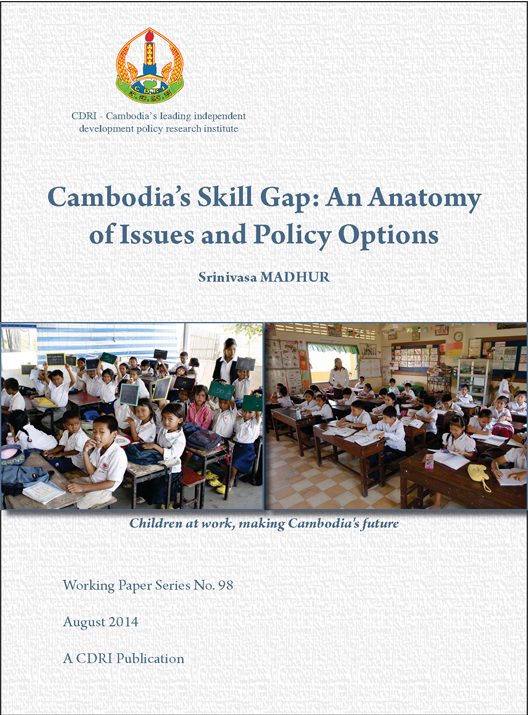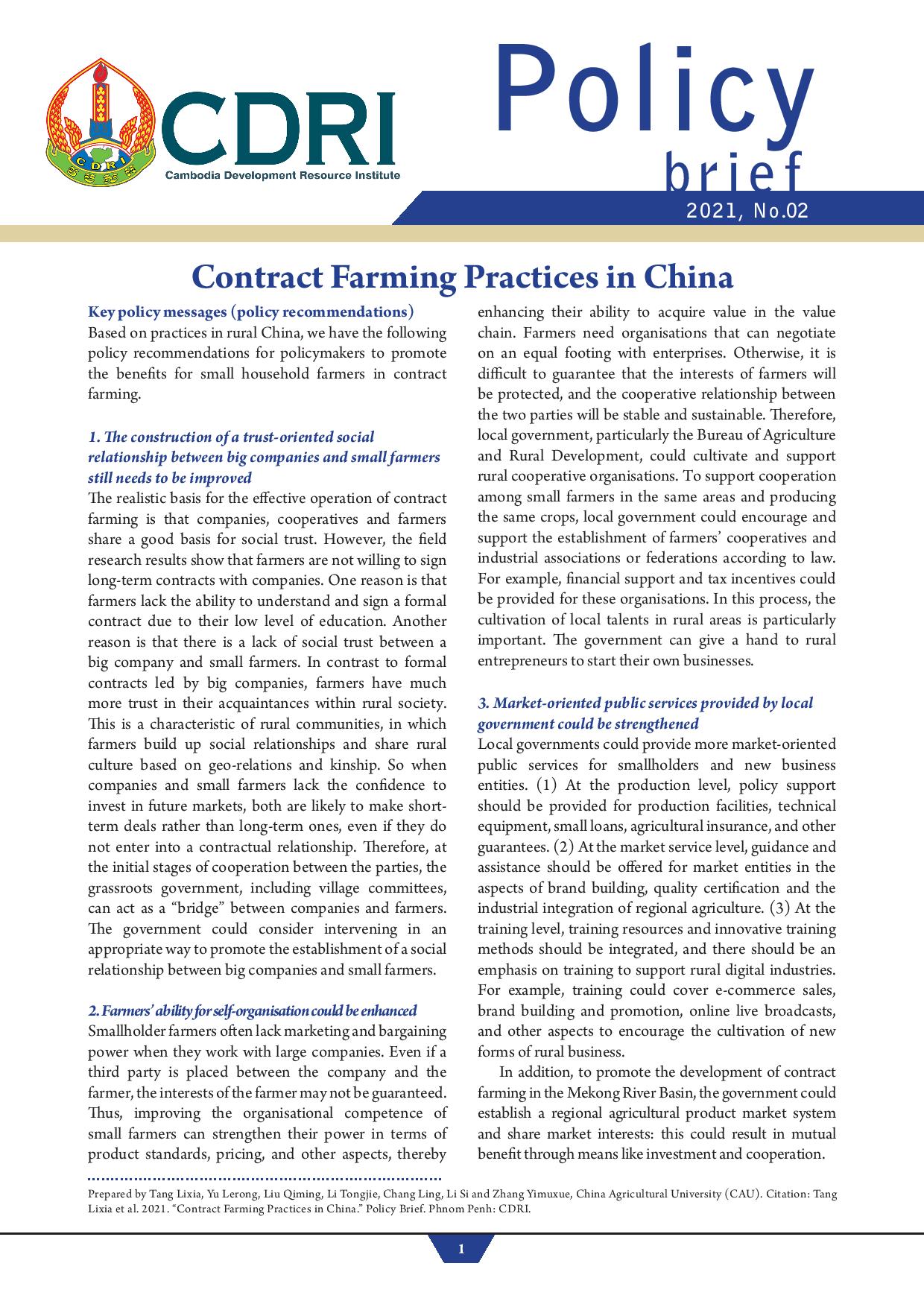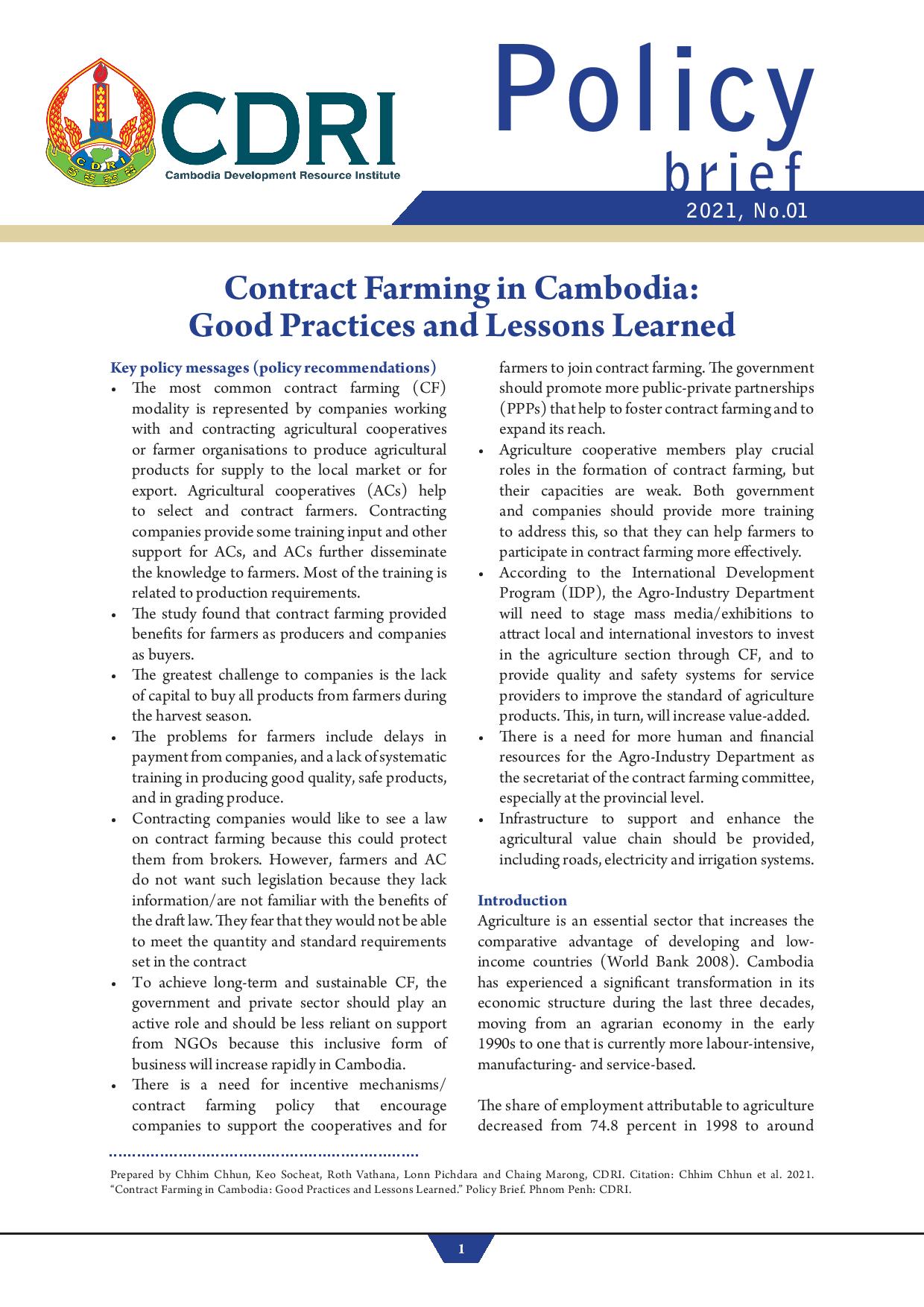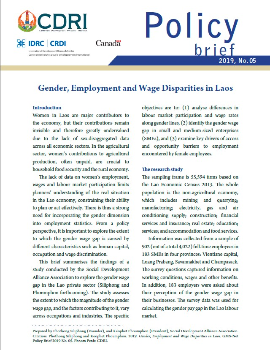
Cambodia’s Skill Gap: An Anatomy of Issues and Policy Options
Keyword: Skill gap, economic growth and development, education institutions, ASEAN Economic Community, Cambodia
Abstract/Summary
Cambodia faces a growing skill gap that threatens its economic development and youth employment prospects. This gap stems from two interrelated educational deficiencies: a schooling gap—low enrollment and completion rates beyond primary education—and a learning gap—poor quality of education and inadequate acquisition of job-relevant skills. Despite progress in expanding access to education, especially at the primary level, secondary and tertiary education remain underdeveloped, with high dropout rates and limited alignment with labour market needs. The shortage of trained teachers, particularly at the primary level, is identified as the most critical constraint, perpetuating a cycle of poor education outcomes. The paper proposes a comprehensive teacher development strategy focused on preparation, pay, and performance, supported by importing qualified teacher trainers. Complementary reforms include early childhood education, curriculum modernisation, improved education governance, and scaling up technical and vocational education and training (TVET). The study emphasises the urgency of political commitment and increased investment in education to harness Cambodia’s demographic dividend. Without decisive action, today’s education gaps will become tomorrow’s skill deficits, undermining the country’s aspirations for inclusive growth and regional competitiveness in the ASEAN Economic Community.



